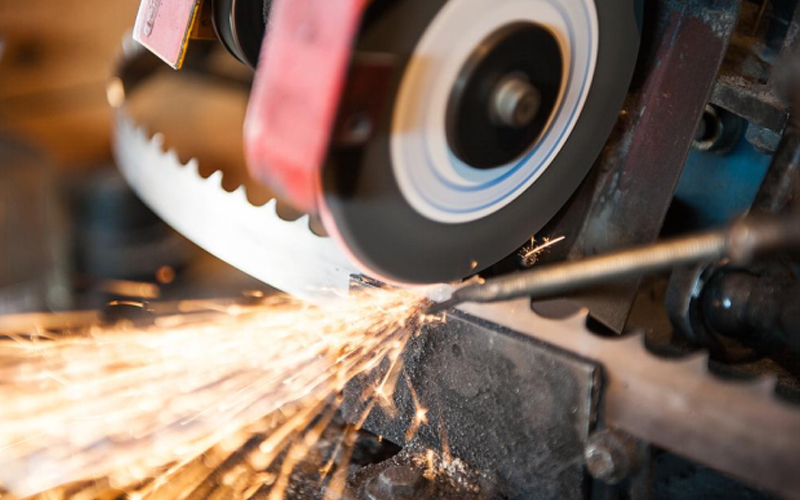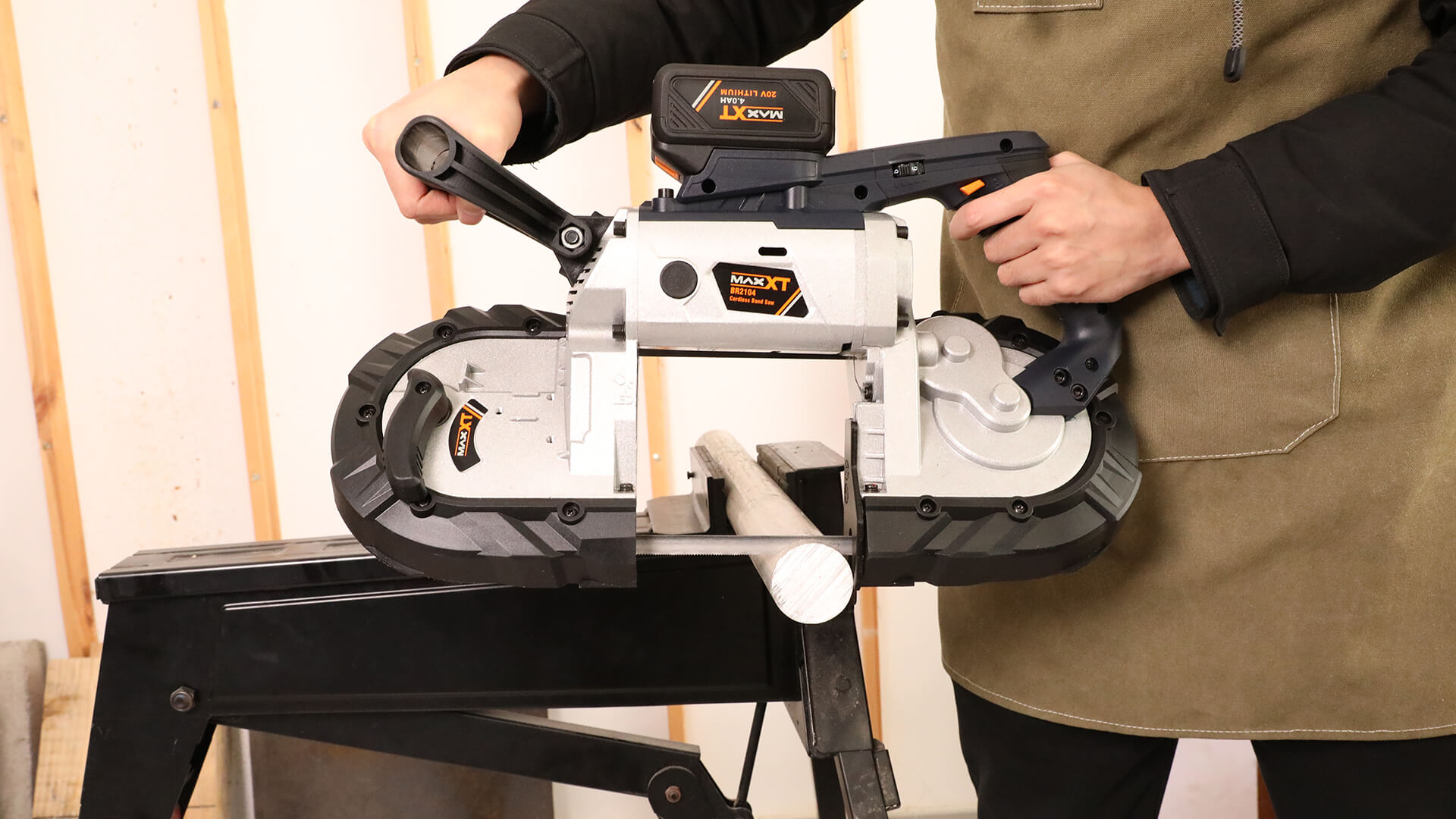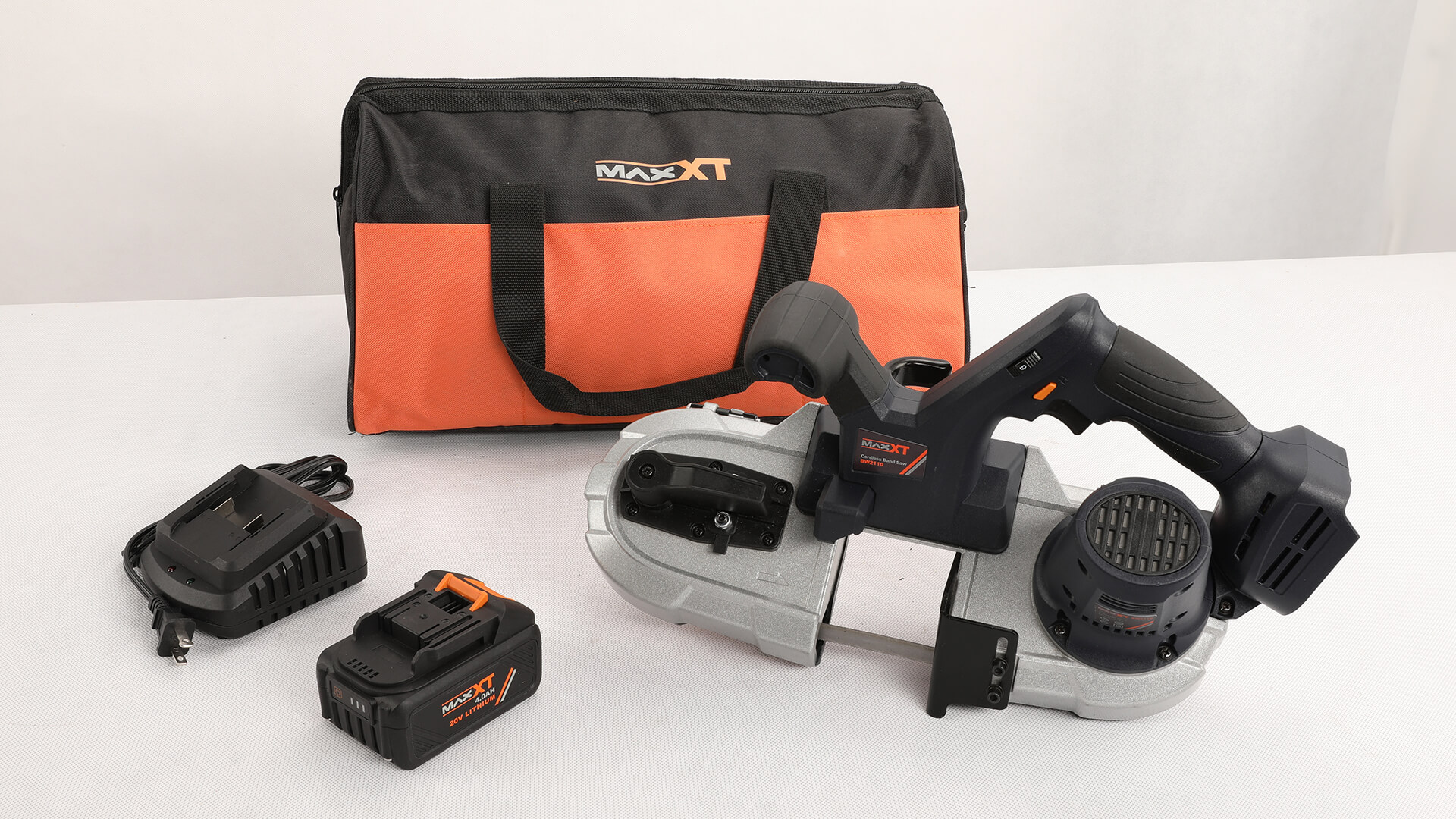A band saw is a versatile cutting tool commonly used in woodworking, metalworking, and lumbering projects.
It features a long, continuous toothed metal blade that moves around two or three wheels, enabling it to cut through various materials, including plastic, wood, and metal.
The unique ability to make both straight and curved cuts sets the band saw apart from other cutting tools, making it an essential component in many workshops.
Among the numerous uses of a band saw, artistic and sculpting applications allow craftsmen to create intricate designs and sculptures in a wide range of materials.
In short, the band saw's adaptability and wide range of uses make it an invaluable tool for artisans, woodworkers, and metalworkers alike.
Its ability to execute precise and intricate cuts allows for endless creative possibilities and makes it suitable for various projects involving diverse materials.
What is a Band Saw
A band saw is a cutting tool with a long blade that consists of a continuous toothed metal sheet.
They are used principally in woodworking, metalworking, and lumbering but may cut a variety of materials.
Band saws have incredible versatility, especially when making unique or irregular cuts.
History and Evolution
Before the invention of the modern band saw, people relied on manual saws for cutting various materials.
With the introduction of powered saws in the late 18th century, band saws emerged as a new class of power tools.
The first band saw patent was issued in 1809 to William Newberry in England.
Throughout the years, many improvements have been made to the design, making them safer and more efficient.
Types of Band Saws
There are several types of band saws that cater to different purposes and materials:
1.Benchtop Band Saws: Typically used by hobbyists, these compact and portable saws are ideal for small woodworking and metalworking projects.
2.Floor-Standing Band Saws: These larger, more powerful band saws are designed for industrial and professional use, providing extra stability and precision for complex cuts.
3.Vertical Band Saws: Most commonly used in woodworking, vertical band saws have a stationary blade and a vertically-oriented table that allows the user to feed the material into the blade.
4.Horizontal Band Saws: Primarily used in metalworking, these saws have a horizontally oriented blade and are best suited for cutting pipes, tubes, and solid metal bars.
Each type of band saw is designed to accommodate specific tasks and materials, ensuring optimal results and a safe working environment.
Common Uses and Applications
Woodworking
Band saws are versatile tools commonly used in woodworking projects. They are ideal for making precise cuts for joinery, such as tenons, dovetails, and lap joints.
In addition, band saws are excellent for resawing lumber, increasing board capacity by slicing them into thinner pieces.
Furthermore, they are useful for creating veneers and thin slices, allowing woodworkers to produce thin sheets of wood or other materials.
For achieving a smooth finish on your woodworking projects after cutting, you may want to learn como usar uma lixadeira orbital.
For achieving a smooth finish on your woodworking projects after cutting, you may want to learn como usar uma lixadeira orbital.
Metalworking
Although primarily associated with woodworking, band saws can also be used for cutting metal materials.
In metalworking, band saws are used for cutting structural steels, billet shaping, and making notches.
It is important to use the appropriate blade for cutting metal to prevent damage to the tool and achieve clean, precise cuts in the material.
Cutting Curves and Complex Shapes
One of the biggest advantages of band saws is their ability to cut curves and intricate shapes.
The stationary loop design of the blade allows woodworkers to cut large, dense pieces of wood with precision and ease.
This makes band saws perfect for detailed woodworking projects that require cutting curves, circles, and decorative patterns.

Safety and Maintenance
Proper Usage Guidelines
When using a band saw, it's important to adhere to proper usage guidelines to ensure safety and prevent accidents. These include:
●Always wear appropriate safety gear, such as protective glasses and eyewear.
●Make sure the blade guard is in place to minimize the risk of injury.
●Maintain proper tension on the blade using the tension adjustment feature.
●Use the emergency stop button when necessary to immediately stop the saw.
●Employ a dust collection system to maintain a clean and healthy working environment.
●Keep hands and fingers away from the cutting area, using push sticks or auxiliary tools if needed.
Routine Maintenance Tips
Regular maintenance of your band saw is essential for safe operation and optimal performance. Following these routine maintenance tips can help ensure the longevity of your band saw:
1.Inspect the blade regularly: Check for broken teeth, dullness, and rust. Replace the blade as needed.
2.Clean the saw: Remove dust, debris, and residue from the saw's surfaces and components, including the table, blade, and adjustment mechanisms.
3.Lubricate moving parts: Apply appropriate lubricants to the blade guide assembly, tensioning mechanism, and other moving parts as recommended by the manufacturer.
4.Check the blade tension: Verify that the blade tension is correct and adjust if necessary.
5.Examine the blade guides: Ensure that the blade guides are properly aligned and in good condition, replacing any worn or damaged components.
6.Verify the blade tracking: Confirm the blade is tracking correctly on the wheels and adjust if required.
7.Test the emergency stop: Make sure the emergency stop button is functioning properly and is easily accessible during operation.
Selecting the Right Band Saw
When selecting the right band saw for your woodworking needs, there are several factors and features to consider.
Additionally, knowing the top brands and models in the market can help you make a well-informed decision.


Key Features to Consider
●Size: Band saws come in different sizes, including floor-standing cabinet models and shorter units for mounting on a dedicated stand or benchtop. Choose a size that fits your workspace and the scale of projects you typically undertake.
●Blade attributes: Different bandsaw blades perform specific tasks better depending on their thickness, width, length, and tooth configuration. Choose the right blade for your cutting needs, considering factors like precision, speed, and materials you work with.
●Power: Opt for a band saw with adequate power for your woodworking projects. A higher horsepower motor will allow you to cut through larger and denser materials with ease.
●Ease of use: Look for a band saw with features that make it easy to maneuver, adjust, and maintain. For instance, a blade tensioner should be present for simple blade changes, and a quality fence system ensures accurate and straight cuts.
Top Brands and Models
Once you know the key features to consider, it's essential to explore the top brands and models available in the market.
Some of the reputable band saw manufacturers include:
1.Grizzly: Known for producing high-quality and reliable woodworking tools, Grizzly offers a variety of band saw models catering to different skill levels and project sizes. Examples include the Grizzly G0555XH and G0513X2.
2.Laguna Tools: Laguna Tools offers premium band saws loved by professional woodworkers for their smooth operation and precision. The Laguna 14|12 bandsaw and the Laguna 1412-MBA are two popular models to consider.
3.RIKON: RIKON delivers cost-effective and durable band saws perfect for hobbyists and semi-professionals. The RIKON 10-305 and RIKON 10-324 are examples of models to consider.
4.Jet: Jet offers a range of high-quality band saws, known for their precise cutting capabilities and user-friendly features. The Jet JWBS-14SFX and Jet JWBS-15 are popular models worth checking out.
5.MaxXT: MaxXT presents the BW2110 and BW2111 portable brushless bandsaws, designed to provide accurate and efficient cutting performance with ease of use. These band saws are perfect for professionals who require precision and convenience in their cutting tasks.
Choosing the right band saw for your needs often comes down to understanding the key features crucial for your projects and researching the top brands and models available in the market.
By doing so, you'll ensure that you select a band saw that meets your woodworking needs and lasts for years to come.
